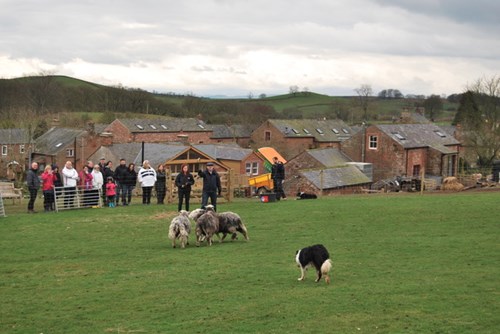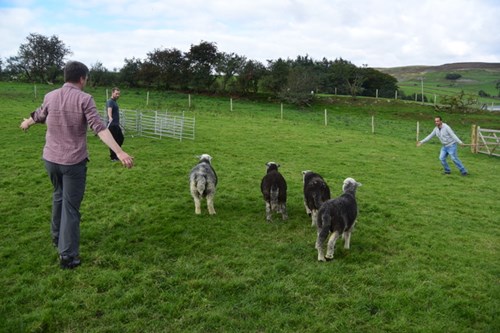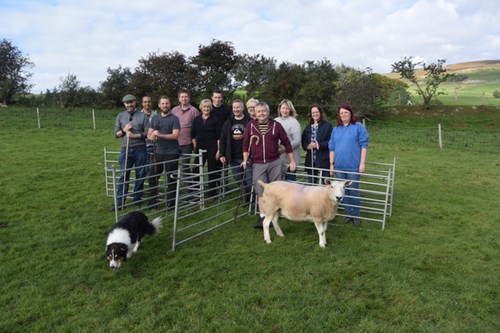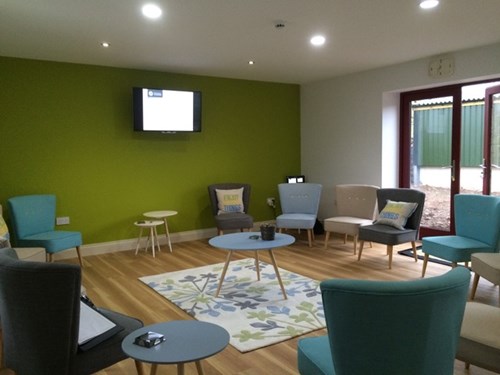What can the limbic emotional systems of working sheepdogs and sheep teach you about yourself, about those you work with, and the impact you have on each other?
Natural Leaders is a leadership development experience like no other. With traditional team development, teams put their best foot forward for fear of showing their vulnerabilities. This veneer of bravery limits learning and is potentially damaging to your organisation.
The supportive and safe learning environment of Natural Leaders was created to go beyond traditional team building – providing a vivid experience for leadership exploration on an individual level, as well as within teams.

“It’s in the most fantastic setting, a really, really interesting day. You’re there in front of a bunch of peers with you, a dog and some sheep and you’re expected to make things happen – and wow, it happens.” - Julian Parsons, Head of Service Delivery, Buckinghamshire & Milton Keynes Fire & Rescue Service
Using the latest behavioural science, you will unpack your unique leadership attributes and come away with new strategies, skills, behaviours and models for effectively handling situational leadership like change, strategy development and challenge.
“It gives you a different perspective on how others lead and actually makes you reflect on how you lead yourself” – Fiona Stobart, Chief Executive, Hospice at Home Carlisle and North Lakeland
You may be surprised to learn that sheepdogs and sheep use their limbic emotional systems to react, build communities, function effectively and instil leaders and followers.
Despite their capabilities, sheepdogs are not inherent leaders. Instead, they are naturally bred to want to serve and to be a co-worker. Like your best manager and leaders, they know one truth and that is to work for their shepherd.

“It was a really interesting way of looking at leadership and working with people and looking at it from a completely different perspective.” – Dr Rachel Preston, GP, Cumbria CCG
Are you the shepherd or the sheepdog of your group? In many ways, both act as leaders in a symbiotic way. The trust relationship is very powerful and built on love and relationship, knowing how each other will react at any given moment.
"The function of leadership is to produce more leaders, not more followers." – Ralph Nader
Our limbic emotional systems read body language immediately. With just 20% of communication being verbal and non-verbal making up the other 80%, we cannot afford to underestimate the importance of body language and emotional management.
The unbiased feedback from our working sheepdogs and sheep will enlighten you beyond your imagination. Once you are in the field, job titles, responsibilities and hierarchies become irrelevant. Our animal teams respond to your commands; they read body language and leadership in a pure and telling non-judgemental manner, giving infinite opportunity to improve how we work for ourselves, with others, and for others.

During this immersive experience, you will enjoy a team breakfast and a home-cooked lunch, with refreshments available throughout.
This is your space away from the distractions of everyday life; you and your team will be made to feel at home in our beautiful 1790s converted barn, equipped with a modern learning centre to maximise your experience and outcomes.

Reflection is encouraged throughout your experience. You’ll be amazed as you begin to notice behaviours in the field that reflect experiences in your daily working life.
“I know that the majority of our 12-strong team had mixed ideas in terms of what lay ahead as the day began; never in their wildest imagination did they envisage how interesting, challenging and thought provoking it would be.” – Hilda Yarker, Communications Consultant, Your Housing Group
We learn and grow and our creativity is most encouraged when we are in new environments and situations. To achieve our true potential as leaders, we must test ourselves and stretch ourselves. It’s amazing what happens when we use the natural rhythms and forces of nature to learn, grow and succeed.
This is what a team shared with ITV Boarder News when they visited Natural Leaders.
To find out more about the Natural Leaders experience, get in touch with Stuart Jackson on 0151 647 4700 or at stuart.jackson@icecreates.com
 collective voice
collective voice




